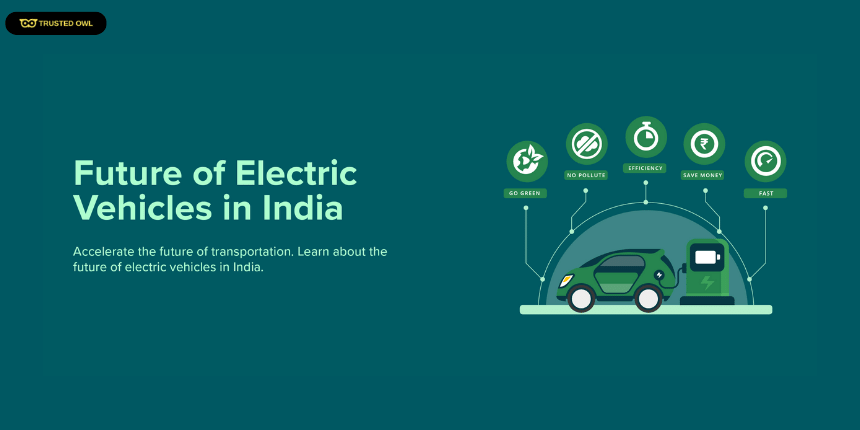
The Future of Electric Vehicles in India
The automotive landscape in India is on the cusp of a revolutionary transformation, and at the heart of this change lies the future of electric vehicles (EVs). With a burgeoning population and growing concerns about environmental sustainability, India is poised to become a significant player in the global EV market. In this blog post, we will delve into the exciting world of EVs in India, discussing the current state of affairs, the driving forces behind this change, and the promising future that awaits electric vehicles on Indian roads. Whether you're an EV enthusiast, an eco-conscious citizen, or simply curious about the future of transportation, this article will keep you informed and updated.
The Current State of EVs in India
As of now, the adoption of electric vehicles in India is still in its nascent stages. However, the landscape is rapidly evolving, driven by several factors:
1. Government Initiatives:
The Indian government has introduced various policies and incentives to promote electric mobility. The Faster Adoption and Manufacturing of Hybrid and Electric Vehicles (FAME) scheme, launched in 2015 and subsequently extended, offers financial incentives for EV adoption.
2. Declining Battery Costs:
One of the primary challenges for EVs has been the cost of batteries. However, as battery technology advances and economies of scale kick in, prices are steadily decreasing, making EVs more accessible.
3. Charging Infrastructure:
Efforts are underway to establish a robust charging infrastructure across the country. Both public and private players are investing in charging stations, addressing the range anxiety associated with EVs.
4. Automaker Investments:
Major automakers, both domestic and international, are investing heavily in EV production and research. Several EV models are already available in the Indian market.
5. Consumer Awareness:
Consumers are becoming more aware of the environmental benefits of EVs and are increasingly considering them as a viable transportation option.
Driving Forces Behind the EV Revolution
Several key factors are driving the electric vehicle revolution in India:
1. Environmental Concerns:
India faces severe air pollution and environmental challenges. The transition to electric vehicles is seen as a critical step in reducing emissions and combating pollution.
2. Energy Security:
Reducing dependence on imported fossil fuels is a national priority. EVs offer an opportunity to utilize domestic sources of electricity for transportation.
3. Economic Benefits:
The EV ecosystem is expected to generate employment opportunities and boost economic growth. It can also reduce the oil import bill, saving valuable foreign exchange.
4. Technological Advancements:
As EV technology advances, the range, performance, and affordability of electric vehicles are improving, making them more appealing to consumers.
The EV Ecosystem in India

To understand the future of EVs in India, it's essential to look at the components of the EV ecosystem:
1. Electric Vehicles:
Leading automakers are introducing electric models in various segments, including two-wheelers, four-wheelers, and commercial vehicles. Models like the Tata Nexon EV and the MG ZS EV have gained popularity.
2. Charging Infrastructure:
The expansion of charging networks is crucial for EV adoption. Public charging stations, home chargers, and fast-charging solutions are all being developed.
3. Battery Technology:
Improvements in battery technology are extending the range of EVs and reducing charging times. Research and development in this area are ongoing.
4. Policy and Incentives:
Government policies, such as lower GST rates on EVs and tax benefits for EV buyers, are encouraging adoption.
5. Startups and Innovations:
The Indian startup ecosystem is actively contributing to the EV sector, with companies working on innovations in battery technology, charging solutions, and more.
The Future of EVs in India

The future of electric vehicles in India is exceptionally promising:
1. Increased Adoption:
As battery prices continue to fall and charging infrastructure expands, more consumers are expected to make the switch to EVs.
2. Diverse Offerings:
Automakers are likely to introduce a wide range of electric vehicles, catering to different budgets and needs.
3. Sustainability:
EVs will play a pivotal role in India's sustainability efforts, reducing greenhouse gas emissions and air pollution.
4. Job Creation:
The EV ecosystem is expected to generate employment in manufacturing, charging infrastructure, and related sectors.
5. Export Potential:
India could become a hub for EV production, with the potential to export electric vehicles to global markets.
An Electrifying Journey Ahead
The future of electric vehicles in India is electrifying, promising a cleaner, greener, and more sustainable mode of transportation. As technology advances, prices drop, and infrastructure improves, the transition to EVs will accelerate.
Whether you're an EV advocate, a business owner considering fleet electrification, or simply someone curious about the future of mobility, keeping an eye on the evolving landscape of electric vehicles in India is essential. It's a journey worth following—one that promises to revolutionize the way we commute, reduce our environmental footprint, and drive India towards a more sustainable future. So, stay updated, stay informed, and be part of the exciting EV revolution in India!
Need help in growing your business? If you care for your business and want to see it at the top like them, you can contact Grow Media Digital. Grow Media Digital is a one-stop solution for every digital need. For More Details, Visit Our Official Website: https://www.growmedia.digital/ or Contact Us: +91 7977032857.



